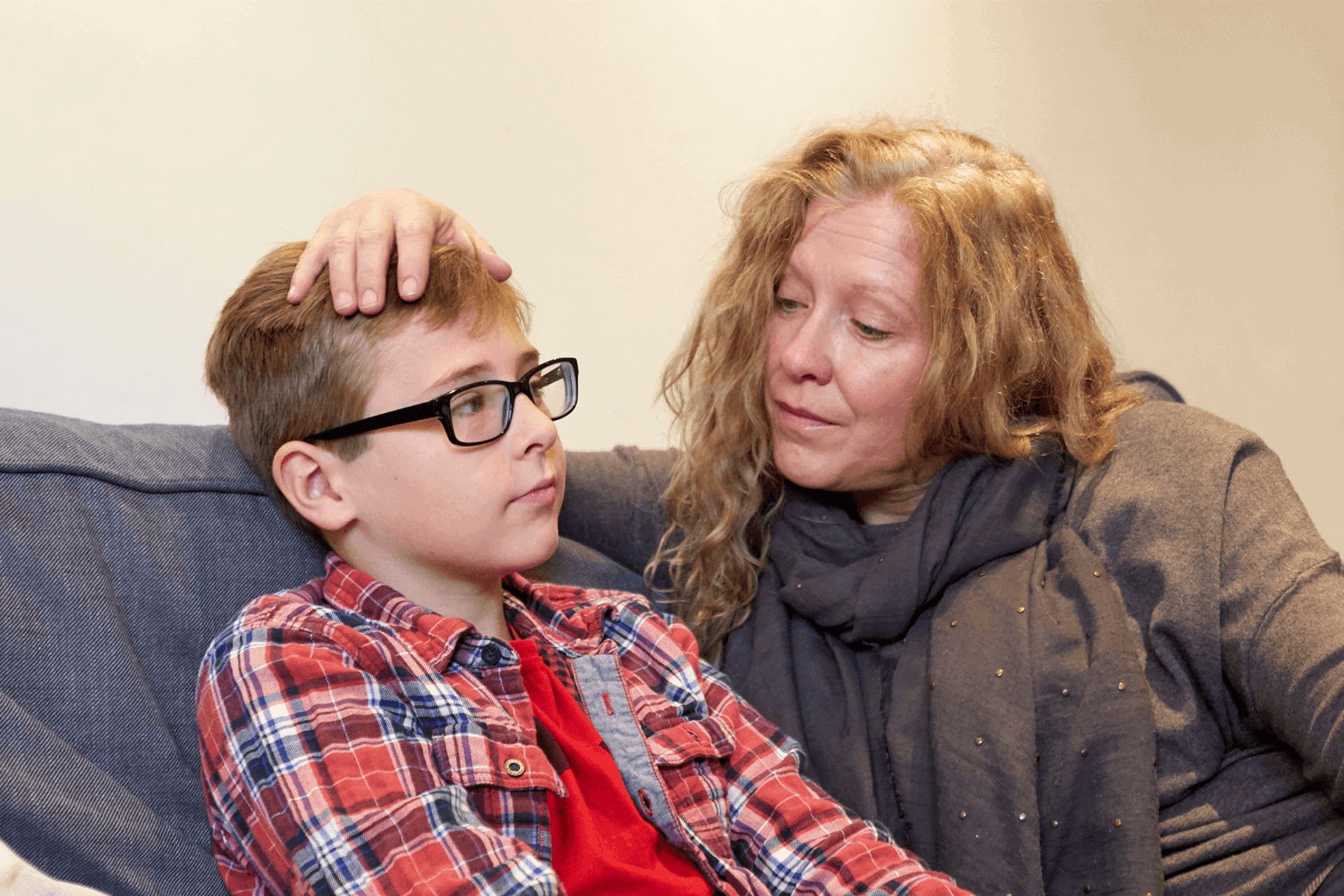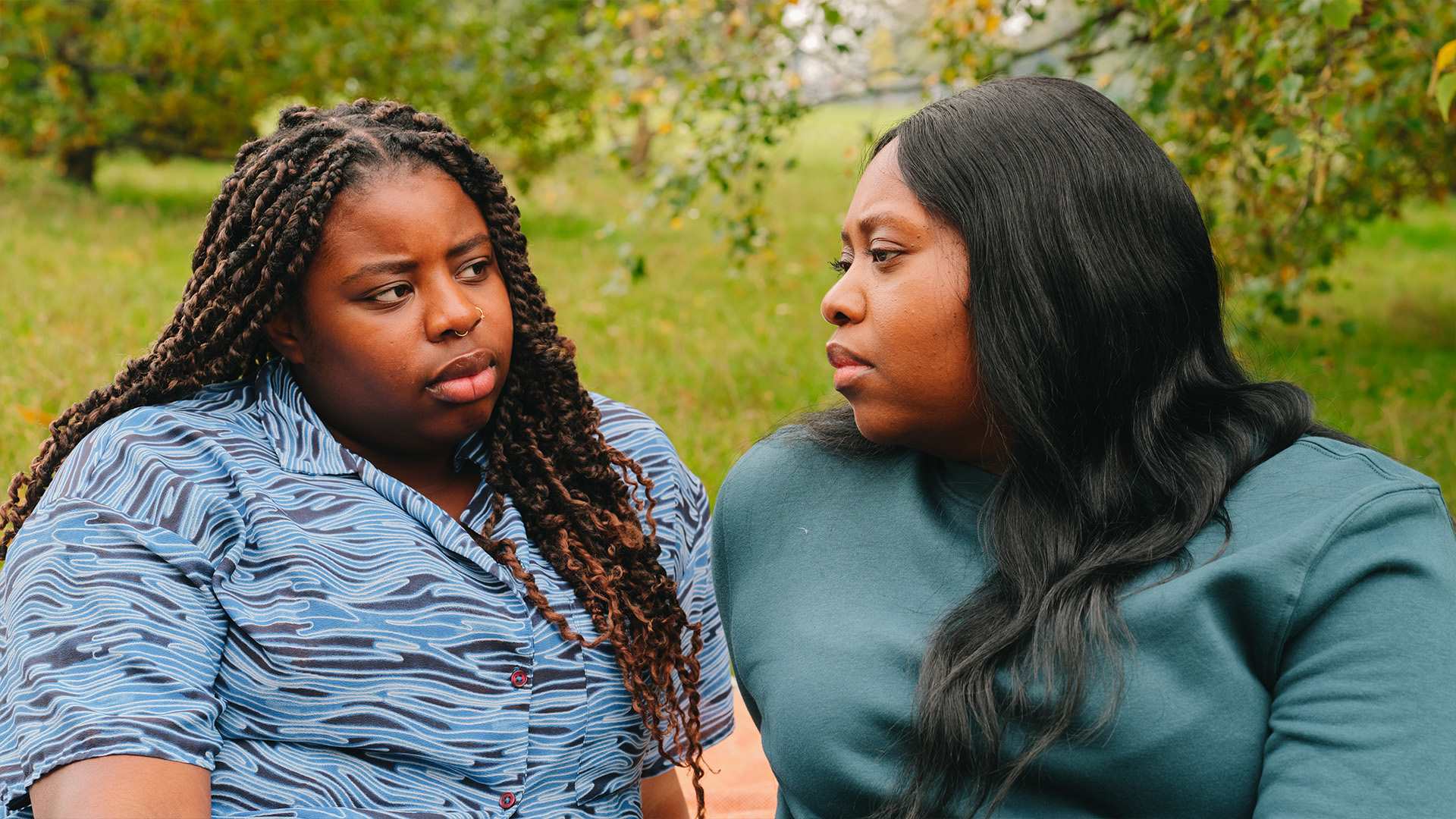When your child is going through a tough time, you can’t always make things better straightaway. But you can make a huge difference by listening and being there. When your child can share what they’re going through and feel understood, their difficult feelings become a little easier to manage. Just knowing they can talk to you helps them feel less alone and more able to cope.
Young people tell us they want adults to listen. But getting these conversations going isn't always easy. Lots of children and young people need support to open up about their feelings. Finding ways to talk is a challenge for so many parents and carers.
That’s why we spoke to parents who’ve been there about what helped them. On this page, you can find their strategies and tips, as well as conversation starters to help you begin.
Helping your child to talk
1. How to start the conversation
Take care of yourself too. If it’s been a tough day, give yourself time to reflect and calm down.
2. How to respond when they’re talking
Remember that when your child is struggling, it doesn’t mean you’ve ‘failed’. You’re showing how much you love and support them by being there to listen.
3. What to do afterwards
It’s not possible to say the right thing every time, and your child doesn’t need you to.
Quick tips for stressful moments
Watch our video to hear our top three tips for checking in during stressful times - whether it's exams, a big change or a new worry.
If your child is finding it hard to talk
Sometimes, your child might find it hard to open up. You might know that something’s bothering them but keep hearing ‘I’m fine’. Or when you ask questions, they might shrug, say they don’t know, ask you to leave them alone or walk away. Lots of parents go through this at some point and it can feel hard to find a way forwards.
If your child is finding talking tough, try some other forms of communication, like:
-
Texting or writing to each other
This can be over text, Whatsapp, email or letter. You can still use our conversation starters to help you check in.
-
Using codewords or emojis
For example, they could Whatsapp you a sad-face emoji to let you know they’re having a bad day. Some parents have found that choosing a neutral and random codeword to signal a bad day works too. They can message, say or write this word down when they need to.
-
Making cards to help them ask for what they need
For example, they could have a card with a picture of going for a walk on it, or one for watching TV together. They can give or show you these cards when they want support but it’s hard to talk.
If things are feeling really stuck
Sometimes a child or young person just isn’t ready to talk, no matter what you try. It doesn’t mean they’ll feel this way forever. But it can be really upsetting as a parent. You might feel like you’re being rejected. But it isn’t about you. Lots of people find it difficult to open up when they’re struggling. Even though it’s tough, try not to step back or shut down. Make it clear that you’re still there and you’ll be ready when they are.
Here are some strategies parents have found helpful:
If your child tells you they're struggling
It can be really worrying when your child lets you know they’re going through a tough time. You might feel like you’re not sure what to do next or how to help them. Remember that listening, being there and showing how much you care makes a big difference. Keep offering opportunities to talk and spend time doing things they enjoy together.
If they’re up for it, think together about what's making them feel this way. It could be something at home or school, a relationship with a friend or family member or something else. If they can identify the problem, work together to think of changes that might help. Our conversation starters can help you.
You can also let them know about the helplines, textlines and online chat services they can talk to. Reassure them that it's okay to use these services whenever they need to.
If they need mental health support
Sometimes young people need professional support to feel better. If this is the case, making an appointment with a GP and looking into counselling are two good places to start. You can also speak to their school or college about what support they offer. Find out more in our parents’ guide to getting support.
If you’re worried about their safety
In some situations, you may need to take action to make sure your child is safe. For example, if they tell you they’re being bullied, someone is hurting them, or they’re thinking about seriously hurting themselves. In these situations, work together to come up with a next step that would make them more safe. Remember it’s important for your child to see you’re taking them seriously. We have advice about what to do next in our parents’ guides:
Useful helplines and websites
-
YoungMinds Parents Helpline
We support parents and carers who are concerned about their child or young person's mental health. We can provide detailed information and advice, emotional support and signposting.
You can speak to us over the phone or chat to us online. When we’re closed, you can still leave us a message and we'll get back to you in 3-5 working days.
- Opening times:
- 9.30am-4pm on Mondays, Thursdays and Fridays; 9.30am-6pm on Tuesdays and Wednesdays
-
Childline
If you’re under 19 you can confidentially call, chat online or email about any problem big or small.
Sign up for a free Childline locker (real name or email address not needed) to use their free 1-2-1 counsellor chat and email support service.
Can provide a BSL interpreter if you are deaf or hearing-impaired.
Hosts online message boards where you can share your experiences, have fun and get support from other young people in similar situations.
- Opening times:
- 24/7
-
Samaritans
Whatever you're going through, you can contact the Samaritans for support. N.B. This is a listening service and does not offer advice or intervention.
- Opening times:
- 24/7
-
Black Minds Matter
Connects Black individuals and families with free professional mental health services across the UK.
-
Muslim Youth Helpline
Provides faith and culturally sensitive support for young Muslims.
Online chat service available during opening hours.
- Opening times:
- 4pm - 10pm, 365 days a year
-
Papyrus
Offers confidential advice and support for young people struggling with suicidal thoughts, as well as family and friends; and information about how to make a safety plan.
Its helpline service - HOPELINE247 - is available to anybody under the age of 35 experiencing suicidal thoughts, or anybody concerned that a young person could be thinking of suicide.
- Opening times:
- 24/7 every day of the year
-
Ollee
A virtual friend for 8-11 year olds and their parents that helps families think about feelings and talk about difficult topics. Download the app.
-
Tellmi
Formerly known as MeeToo. A free app for teenagers (11+) providing resources and a fully-moderated community where you can share your problems, get support and help other people too.
Can be downloaded from Google Play or App Store.

This page was reviewed in November 2024.
It was created with parents and carers with lived experience of supporting their child or young person to open up.
We will next review the page in 2027.
YoungMinds is a proud member of PIF TICK – the UK's quality mark for trusted health information.






